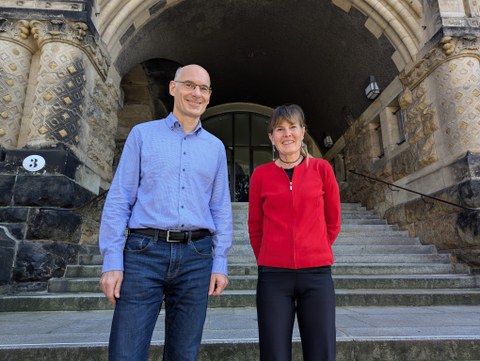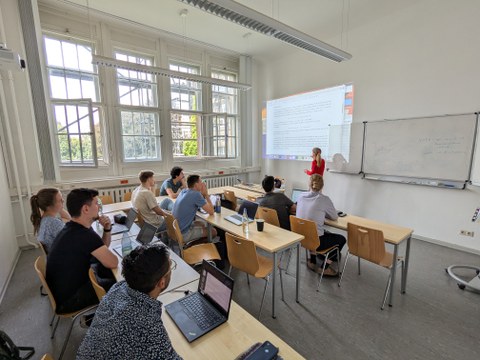Aug 20, 2024
Doctoral Workshops in Dresden: Exploring Chance-Constrained and Advanced Integer Programming
In the past two weeks, two courses for doctoral students were held as part of the Saxon Doctoral Program in Management Research at TU Dresden. In addition to members of the Chair of Business Administration, esp. Industrial Management, doctoral students from the Chair of Business Administration, esp. Energy Economics, and the Chair of Numerical Optimization took part and facilitated an excellent exchange of knowledge.

Prof. Bismark Singh trägt zum Thema Chance Constrained Programming vor
First, Prof. Dr. Bismark Singh from the University of Southampton started with a two-day lecture on Chance-Constrained Programming (CPP) on August 6 and 7. This method can be used to model uncertainties in the constraints of an optimization model. In traditional optimization, constraints are usually deterministic and must be met with guaranteed certainty. In contrast, in CCP, some constraints only need to be satisfied with a certain probability. This is particularly useful in situations where particular parameters are uncertain or subject to fluctuation, such as in energy management, supply chain management, or engineering. After a brief introduction to the topic, multiple solution approaches were discussed, which the seven participating members of our Chair can apply in the future to integrate uncertainties into their models. Besides that, Professor Singh is also a current Research Fellow at TU Dresden and is spending a one-month Distinguished Research Fellowship in cooperation with Junior Professor Dr. Becker.
The second PhD course on August 9-12 was held by Prof. Alexandra Newman from the Colorado School of Mines - current Editor-in-Chief for the INFORMS Journal on Applied Analytics - on advanced methods of integer programming. After the first day revolved around the efficient model formulation of an optimization model, the second day focused on higher solution methods for efficiently constraining and exploring the solution space to determine an optimal solution. Numerous examples from research and practice were used to gain valuable experience for their research work.


